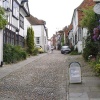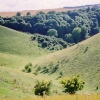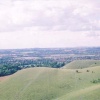Please login or click here to join.
Forgot Password? Click Here to reset pasword
 |  |  |  |  |  |
| Rod Burkey Posts: 554 Joined: 2nd Sep 2008 Location: UK | quotePosted at 17:07 on 31st March 2016 When I had a darkroom, it soon became obvious that there were many ways to transform a negative into a print. The hardness of the paper, which developers to use, which film to use, how to rate it (ISO) were options that needed addressing. Then there were all the tweaks involving burning in and holding back, cutting out bits of card and moving them about between the enlarger lens and paper. There was more, but let’s now jump to digital photography. Modern cameras take pictures through lenses so no change there, but then a whole process takes place and almost instantly in the camera and the fruits of your labour are presented on a screen much smaller the en-prints of old. Then, we download to our computers and for some that is that. We have images that many choose to take as jpegs, so the original file is automatically compressed giving us the picture which can be printed but I suspect many do not even bother. We have a warts and all image. Is that really as good as we want, or should we consider taking the process further? |
| Edward Lever Posts: 734 Joined: 22nd Dec 2005 Location: UK | quotePosted at 00:06 on 1st April 2016 I also grew up messing around in an improvised darkroom, and I still remember the excitement of seeing the final image appearing in the developing dish. Those who wanted to control the image had to do it themselves, since entrusting your precious film to a photo lab often gave unpredictable results. Now with digital, as Rod says, the processing is done for you almost instantly inside the camera, The results for most people are good enough straight out of the camera, such that further tweaking is unnecessary, For those who wish to go further, there are many photo programs to correct defects and add artistic effects. Personally, I prefer to get the image as I want it at the time of taking the picture. Maybe this is because working with film is an exacting discipline. The materials are expensive and there is a wait before you see the end-product, so you have to be sure things are right before pressing the button. Having said that, I have started to use Adobe Lightroom for digital correction of lens defects and minor tweaks. Perhaps the legacy of the chemical darkroom is hard to resist, even to the extent that the tweaking process in Lightroom is still called 'developing'. At the end of it though, it really depends whether you are happy with the result straight out of the camera. Many people seem to be perfectly happy with it, and an image taken in good light rarely requires much correction. Another thing to be considered with post camera processing is the extra time taken to manipulate a RAW image with Lightroom or similar. I do not do it for every image for this reason.
|
| Rod Burkey Posts: 554 Joined: 2nd Sep 2008 Location: UK | quotePosted at 09:07 on 1st April 2016 Common sense as ever, from you Edward. There are times, when I first see the fruits of my labours as a Raw file, I just feel the need to tidy up and tweak, making it fit to submit to POE for example, despite the obvious lack of any quality checks on this most friendly and benign site. I do remove the odd unsightly thing like a bin awaiting the refuse disposal operatives. I do sometimes darken pale skies, and use the dodge and burn techniques once performed in the darkroom now using Photoshop. I feel the need to show any viewer of my snaps some respect, and not show stuff that I feel is too mediocre. "Back in the day" great photographers like Ansel Adams would never crop their images, some even printing the edges of the film frame, but they did did dodge and burn as any close inspection will reveal. The subject is paramount but presentation still is important. I have yet to grapple with Lightroom and must try soon as it's now part of the Photoshop package. Thanks for responding Edward. It would be good to see more posts on Photogrsphy here.
|
| Edward Lever Posts: 734 Joined: 22nd Dec 2005 Location: UK | quotePosted at 10:35 on 1st April 2016 You have started a good thread, Rod, and I eagerly hope to see some more responses. I used dodging and burning-in quite a lot with film, but this was usually to rescue an under/over exposed negative. Now that most digital cameras have an exposure histogram feature, it makes it less necessary to use post-processing to correct over/under exposure, although there are always scenes where the camera cannot cope with the shadows and highlights without some tweaking. I never walk away from a scene without having at least a cursory glance at the exposure histogram of the captured image, in keeping with my philosophy of getting it right as far as possible first time. As regards Lightroom, I bought this as a stand-alone package rather than as a component of Adobe CC. I wanted it mainly to make use of the lens correction profiles and also the library features. An excellent thing about Lightroom is that it does not alter your original image files. All the changes are contained in a 'sidecar' file so your original image files are left untouched, however much you tweak. If you like the edited image, then you can export it and save it with a different name, leaving the original file untouched. Lightroom has many other features which I am still discovering. It complements the features of Photoshop rather than replacing them. |
| James Prescott Posts: 25952 Joined: 11th Jan 2010 Location: UK | quotePosted at 15:49 on 1st April 2016 I must agree with you two chaps -this thread could progress if a few more photographers would participate --i am only sorry that i dont have the expertise as you chaps to get involved with you.  so where are they. so where are they. |
| Edward Lever Posts: 734 Joined: 22nd Dec 2005 Location: UK | quotePosted at 17:40 on 1st April 2016 Thanks for your kind words of encouragement, James. Rod and I have a few pet hobby-horses, but it would be great to hear other's views to broaden the discussion. I admit it can get a bit technical on the Photography threads, but PoE is mostly about sharing pictures which have some meaning for the photographer and hopefully will be of interest to others. Technical quality is just one aspect, and there is a risk that this can become an obsession, rather like a chap showing off his new hi-fi stereo system. It is not necessary to have a fancy camera to get interesting images. If the image has something compelling and interesting about it, technical quality takes a back seat. |
| Rod Burkey Posts: 554 Joined: 2nd Sep 2008 Location: UK | quotePosted at 00:56 on 2nd April 2016 Yes thanks James. The end result of pressing the shutter on a camera should be something worth seeing. Now, worth seeing can mean many things, and sometimes the skill and craft of the photographer is immaterial. It's the subject that counts. I have come to accept that this is one of the great strengths of Pictures of England. I do hope that it is not just you James, Edward and I, who have a view on this. It would be so good if more people contributed to this and opened it up to an exchange of views. Edited by: Rod Burkey at:2nd April 2016 08:53 |
| Ron Brind Posts: 19041 Joined: 26th Oct 2003 Location: England | quotePosted at 08:01 on 2nd April 2016 Well I didn't comment Rod and Edward simply because I am not qualified to do so, but it is a breath of fresh air to see the photography thread started, so thanks to Rod for that. My only thought is with regard to something that Edward picks up on from Rod and that is that the POE site is for allcomers, rather than just professional photographers and so the images are not always going to be the best, or perfect. I think this approach is right and encourages others to take part in a hobby that is probably growing faster now with digital technology than ever before. You guys can always give your opinion to help them can't you? Anyway it's an interesting thread provoking memories and thoughts, so well done. |
| Rod Burkey Posts: 554 Joined: 2nd Sep 2008 Location: UK | quotePosted at 09:17 on 2nd April 2016 Thanks for coming in on this one Ron. As for commenting on the work of others, I think I'm correct in sayimg that both Edward and I do comment on some of the work submitted by others. There lies a quandry. The five star system seems to involve awarding either five or four, as very of the very few that do comment give less than four. I try to be constructive when making comments, but like everyone else my views are in the main, merely subjective. I do rate pictures at less than four stars as well, but do not think this is anything other than constructive. I don't think I've ever castigated anyone for an image I dislike, choosing (maybe in error) to just ignore what I feel is less than mediocre. After all, an image I might dislike may be seen by others as wonderful. Everybody who contributes images or posts is equally qualified to give an opinion. You don't have to have knowledge or even an understanding of fstops and ISOs to be able to give an opinion. Getting back to the "warts and all" theme, my point is that we maybe need to "finish off" pictures and reject some before showing them to other people. Quality control applies to photography every bit as much as anything else that is for the eyes or use of evereyone. So, I don't suscribe to the "show everything, warts and all". I always step back literally from mine and view finished pictures from a few feet away. Then, I delete the duff ones and move on. Everyone takes poor pictures, but I choose to send mine to the recycle bin. I think I'm done with this, and hope the horse is not flogged to death and some other POE people might like to add something.
Edited by: Rod Burkey at:6th April 2016 10:05 |
| Rod Burkey Posts: 554 Joined: 2nd Sep 2008 Location: UK | quotePosted at 10:04 on 6th April 2016 It's a shame that nobody but Edward and Ron has any views on this. Over and out. Edited by: Rod Burkey at:6th April 2016 10:07 |